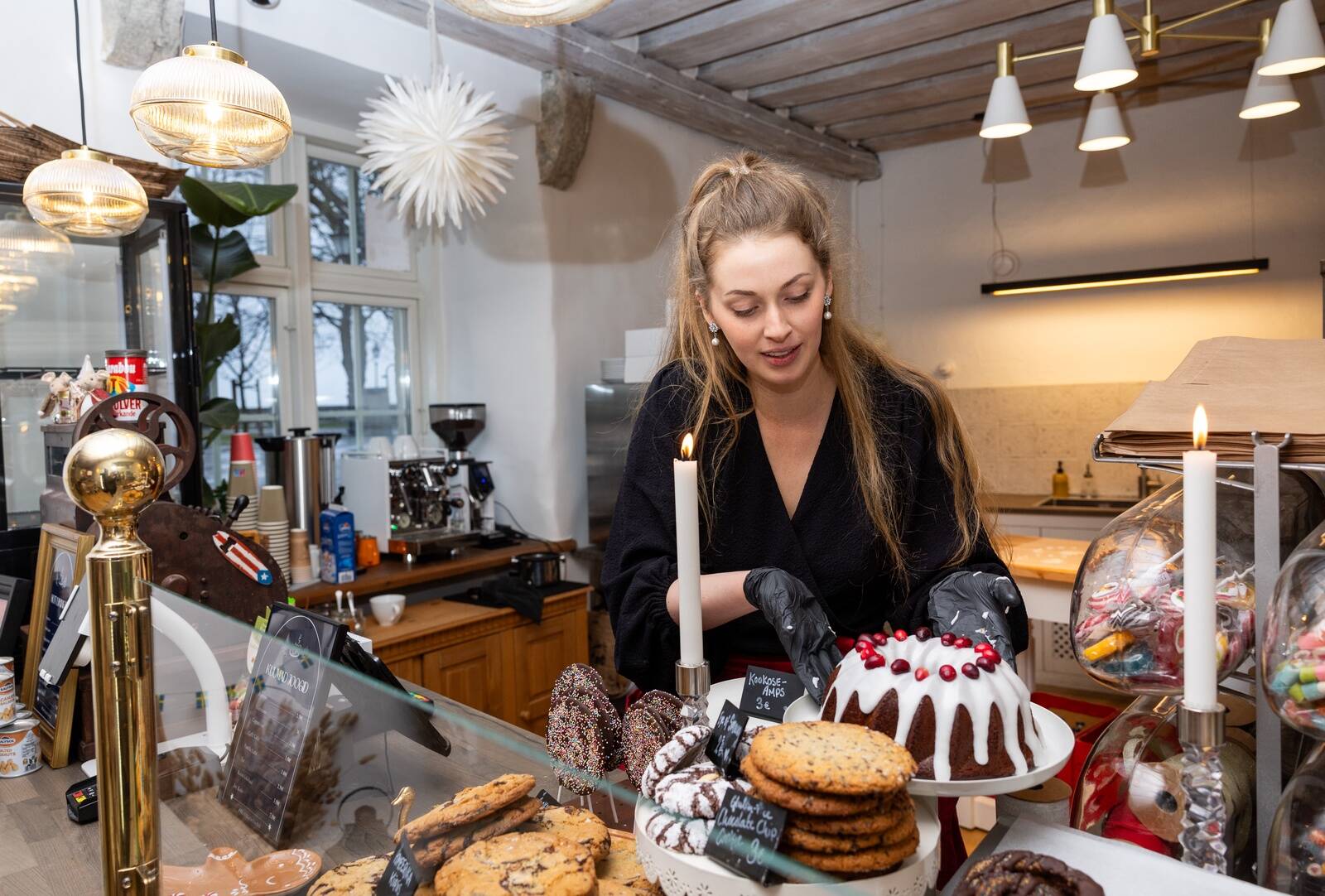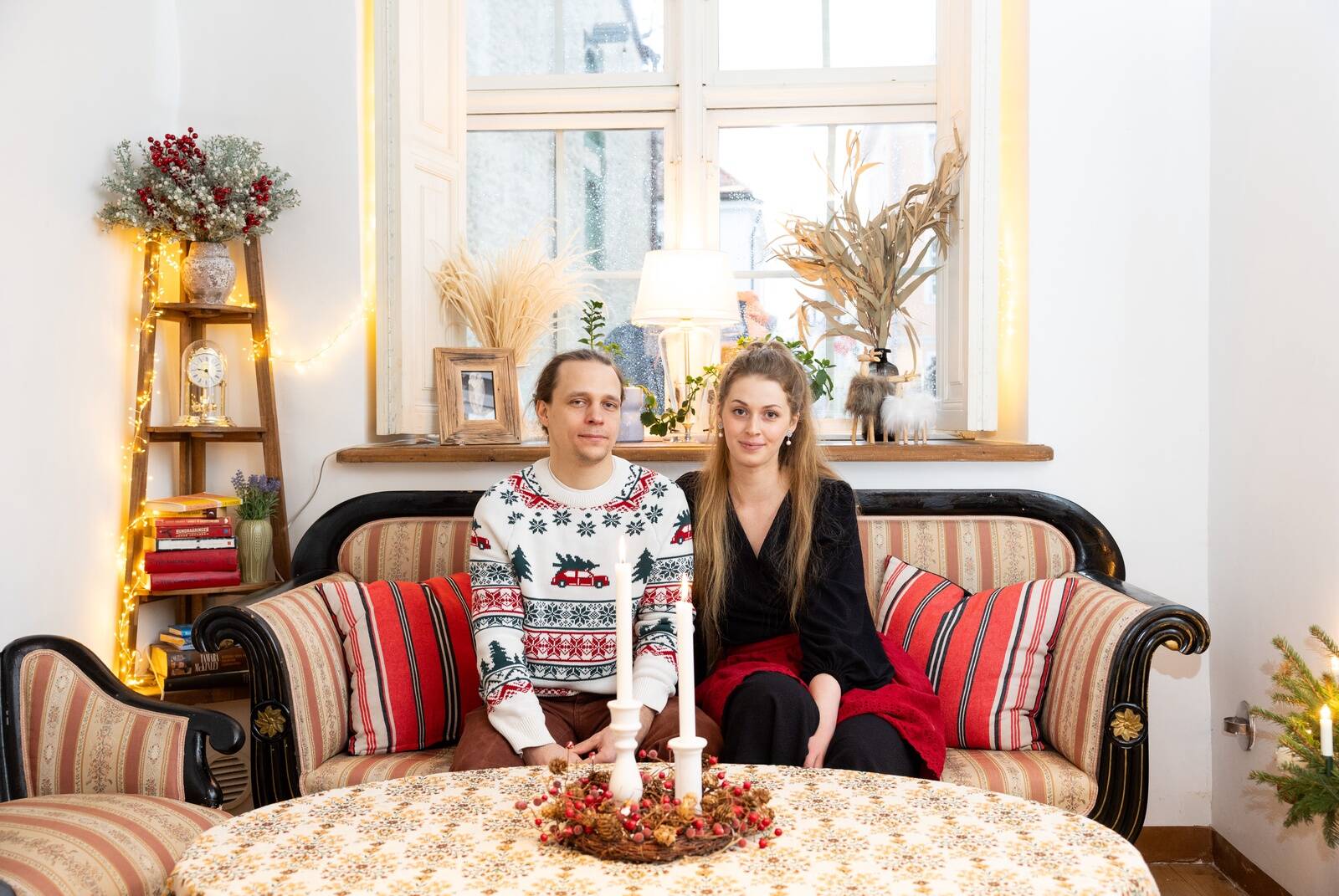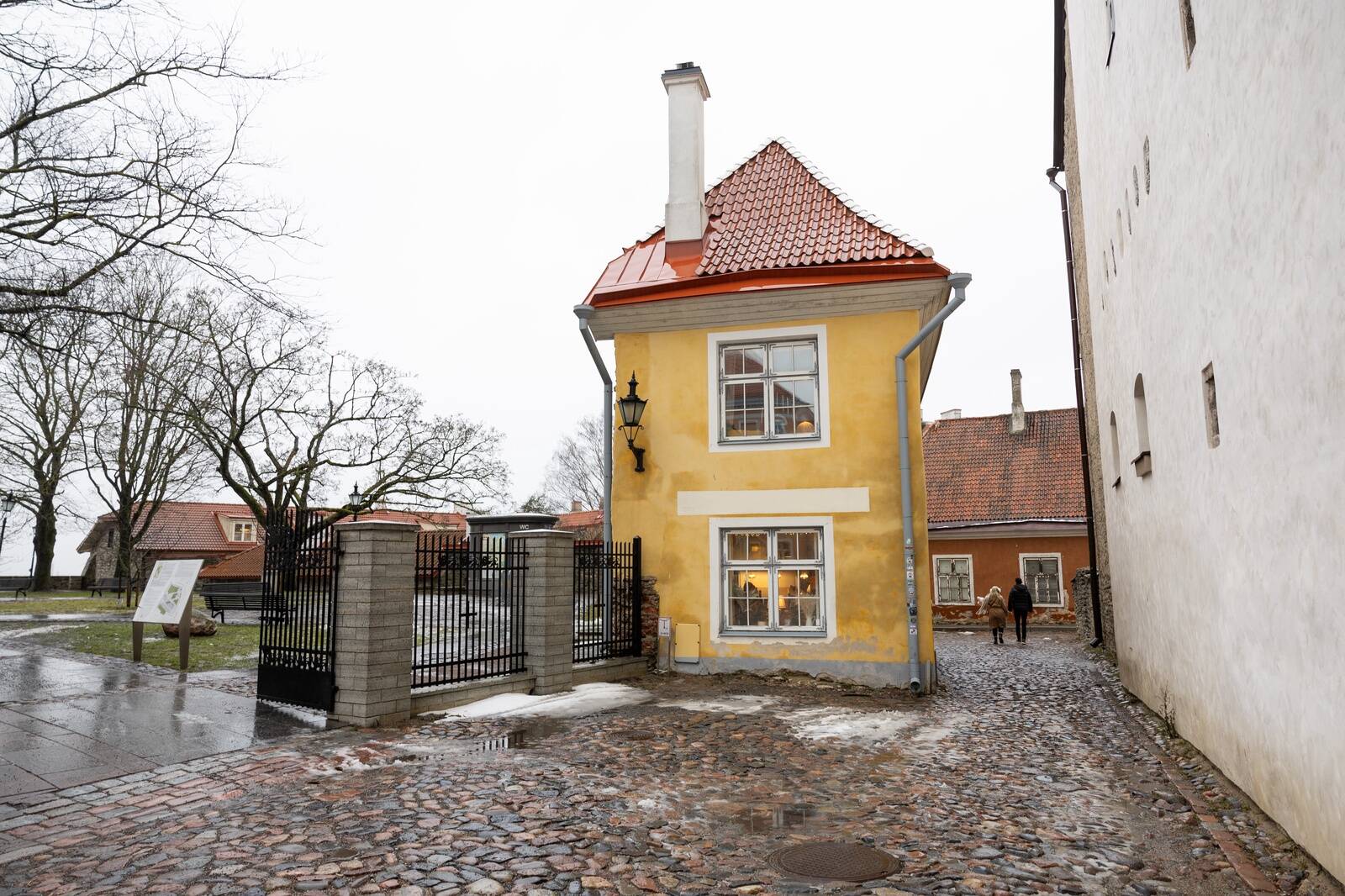“Did you really come from Sweden to Estonia to bake cinnamon rolls?” – this was the question that a neighbor, a priest of the Dome Cathedral, asked Maria Matilda Matejik during a meeting. In December, the heir to the Scandinavian dynasty of sweets producers actually opened a cafe-bakery in Toompea and believes that even in a crisis, her business will find its own niche.
In the small old house near the Bishop’s Garden the lights are on again. “My job is to drive away the curious when we are closed. Through the window they see that it’s cozy inside and they’re baking buns, and they definitely want to come in, even if the door is locked,” says Kaarel Reis, investor and formal head of the family company DeepNorth OÜ, ironically. But the leading role in the cafe is played by his Swedish wife, Maria Matilda Matejik. She herself stands at the ovens with buns and behind the cash register.
“You could say sugar runs through my family’s veins. Back in the 1970s, my grandfather moved to Sweden from Serbia and bought a confectionery factory there. This caused a stir – the Yugoslav took the helm of one of the large chocolate and caramel production facilities – Augusta Janssons Karamellfabrik. He was trained to work with sweets by the sister of the founder, Augusta Jansson, and he ran the factory until his death. My father spent time in production from the age of ten. And then I spent time at the factory with him. I tried to help, I especially loved going with my parents to fairs where they sold sweets,” says Maria Matilda.
She also came to Estonia for the first time for one of the fairs in 2014. Over time, Matecik began to come more and more often; in 2015, her mother married an Estonian and opened her own business in Tallinn, the chocolate bar Karu talu šokolaad in the Old Town on Voorimehe Lane. And in 2018, Maria herself followed her parent’s example, meeting Kaarel Reis in Tallinn. “That’s how irresistible we are in Estonia,” he chuckles. In the first years in the new place, Mathilda helped her mother in Karu talu, but by December 2024 she decided to launch her own business entirely – the Mathilda on the Hill cafe in Toompea.
desert hill
“I needed my own purpose here. Something that will give me a sense of my own task, my own occupation. In addition, I always liked not only making sweets with my own hands, but also personally hearing feedback about the products from customers,” Maria Matilda shares her reasons for opening a cafe. — Yes, things are not going well in the economy right now. But even in times like these, people need a place to gather and have something to eat or drink.”
According to Kaarel Reis, the question of how appropriate it is to start a business during a crisis is asked by many family friends. “But there is a downside to this. If it were not for the downturn in the economy, it would be unlikely that such attractive premises as this one, near the Bishop’s Garden, would be available. When we first started looking for premises, we wandered around Toompea, and there was only one cafe open on its streets. And even then, I had to try to find it. At the same time, a lot of people actually climb the hill,” he notes.
For eight years, a souvenir shop operated in the house at 21 Toom-Koli, which did not survive the COVID19 pandemic, then a cafe that did not last long. According to the new tenants, after the conclusion of the contract, failed competitors stopped by and admitted that they themselves had hoped to rent premises for a restaurant, but Kaarel and Maria were ahead of them. “If you do it right, the location here sells itself,” says Reis. According to him, aspiring entrepreneurs were lucky to have a landlord who liked the concept of their establishment and with whom they found a common language.
During the winter season, the cafe hopes to attract not only tourists, but also the few permanent residents of Toompea. In addition, students from a neighboring school come to Matilda for sweets. By summer, the owners hope for an increase in flow and plan to hire the first hired employees, as well as build an outdoor terrace in front of the cafe.
By car price
“The investment in the opening was more than I had hoped, but less than one might think,” Reiss answers philosophically when asked about the amount of investment. He doesn’t give an exact figure: “Let’s just say this is the cost of a brand new car.”
Entrepreneurs say that buying used equipment and furniture, homemade interior elements, and family heirlooms that became part of the decor, such as a cash register from the early 20th century, helped them save money on their startup. “As for all material things, say, equipment – refrigerators, freezers, or materials, they cost approximately the same in Estonia and Sweden. There is a significant difference in rent and payment for services,” says Kaarel Reis.
Maria Matilda adds one more item to the list of differences between business in Estonia and Scandinavia – the difficulty of obtaining an alcohol license. If in Sweden this is a whole bureaucratic process, then in Estonia it is enough to inform about your intention to sell, including alcohol.
“Our investment in this place was a very risky investment in terms of whether it would pay off or not. But we are prepared for the fact that this is largely an investment in our own experience, and not in immediate profit. Although we hope for income. I believe we cannot expect that it will take less than 3-4 years to build a sustainable profitable model and customer base,” notes Reis.
Matejik echoes him: “My mother always said: “Wait four years, and then you will have a clientele that will come back.” I think you can trust her – here under the hill, in front of the cafe on Voorimekh, there is always a queue.”
Related articles
Tourists praise Tallinn’s Old Town for its coziness, medieval beauty and well-kept “postcard appearance”. But there are also dark spots on its map – abandoned or unused ancient buildings. Delovye Vedomosti compiled a list of them, and at the same time found out who owns the deteriorating buildings.
Rising prices for electricity, a decrease in the number of tourists and rising taxes have seriously affected the restaurant industry in Tallinn: in the center, many establishments are changing their format, closing or optimizing costs. It is no less difficult for restaurants in the largest residential area of the capital, Lasnamäe, which were originally designed for local residents.
Upon entering the bar and hotel at the former distillery, guests are greeted by Kaja Callas in a pink ballgown, Kersti Kaljulaid and Kim Jong-un in the images of fatal beauties, and a whole host of politicians and pop culture icons.
Estonia is not working to sell itself to tourists as a single brand, says Julia Hölscher, who runs the Lahemaa Kohvikann accommodation restaurant in Lääne-Virumaa.
Source: www.dv.ee




